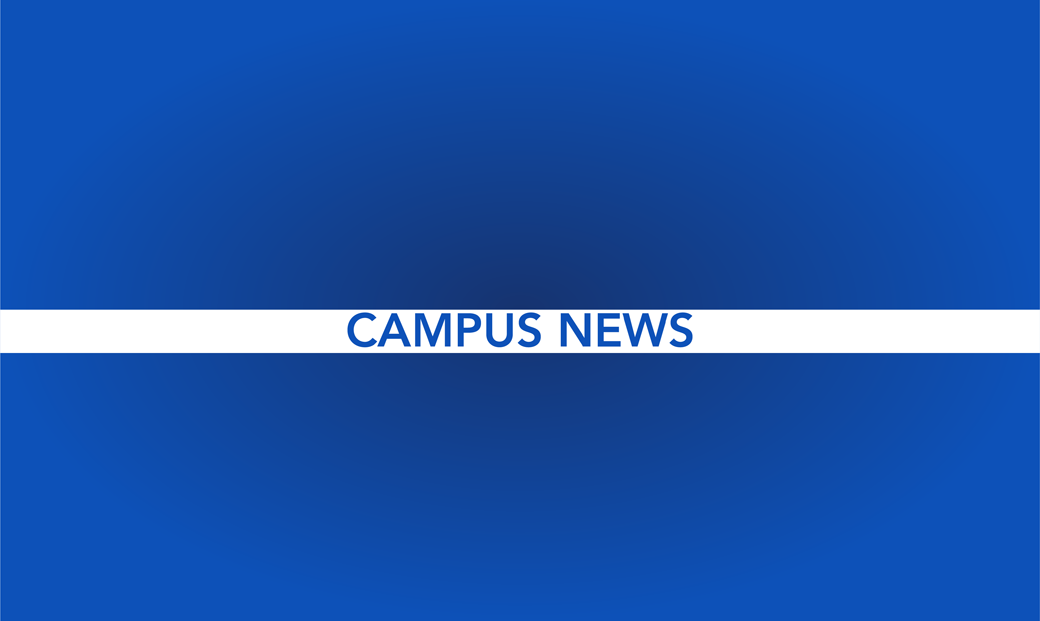
Survey pinpoints faults within USD’s Student Services
University of South Dakota students say they want more support from Student Services, according to recent trends in the 2014 National Survey of Student Engagement.
President James Abbott said he is disappointed by some of the feedback from the survey, and made a point of recognizing these concerns during his State of the University address Sept. 17 in Aalfs Auditorium.
“You can’t look at every one of these questions and assume the worst,” Abbott said. “But we are trying to look at the questions and figure out what students need and respond.”
NSSE collects information at hundreds of four-year colleges and universities about first-year and senior students’ participation in programs and activities.
USD received survey results within the past two weeks, and officials are able to evaluate how the university compared to similar institutions in the country.
More than 1,500 different colleges and universities in the U.S. and Canada have participated in NSSE since it was first administered in 2000.
About 31 to 32 percent of USD’s seniors and first-years responded to the emailed NSSE survey last spring, said Dale Pietrzak, director of Academic Evaluation and Assessment. This response percentage is typical for USD, he said.
What was unusual about the survey was that USD students rated the level of student-support services as “significantly lower than the other schools,” Pietrzak. These “other schools” have been distinguished as highly comparable to USD though framework created by the Carnegie Commission of Higher Education.
University officials will not release the data from the survey because they want more time to analyze the information to include in a summary that will be released around mid-October.
Abbott announced in his 18th university address as president that a committee will be formed to make broad recommendations in response to the survey’s results. Matt Moen, dean of the College of Arts & Sciences, will chair the committee. Abbott said he is not sure who will be part of the group, but believes students will be involved.
Potential issues to be addressed at USD could include housing and on-campus student activities, but Pietrzak is still in the process of breaking down the survey and determining where administrative attention should be focused.
“None of these assessments are looking at us from an absolute point. I don’t think Student Services on most campuses can afford to be terrible,” he said. “We are comparing ourselves to improve. We can always do better, and our students are saying to us that this is an element that we can do better in.”
But some services can be ruled out. For instance, USD ranked higher among other Carnegie institutions for aspects such as adviser-student interactions and career discussions with faculty. Advising services, Pietrzak said, are likely not the issue.
Senior Aaron Loudenslager is not surprised student-support services at USD ranked lower compared to other institutions. He said he is fed up with USD’s Student Services after four years on campus.
“I’ve put thousands of dollars into this university, but Student Services has been mediocre,” he said. “It’s super frustrating to know that some people — not all — but some people at this university just don’t care.”
Austin Underwood, a junior, said he experienced more personal attention from Northwest Missouri State University student-support services, which he attended for a year before transferring to USD.
But Underwood said he has found a lot of guidance this year from career services offered through the Beacom School of Business.
Another element of the survey that carried statistical significance is fewer USD students reported they attended university events than comparable colleges and universities.
The survey also revealed that USD students seem to work more hours at off-campus jobs than students at other schools. Abbott said there may be a relationship between the two facts, which could be something the committee assesses as it moves forward.
Junior Alex Eriksen said she attends most Campus Activities Board events, but mostly to support friends she has in the organization. Ericksen said she wishes more students, including herself, would take more advantage of university events.
“I was dragged to this speaker last year who was on death row for years, and I couldn’t believe how much I was mesmerized by him,” she said. “But I never would have gone without my friends pushing me to go.”
Sophomore Emme Barrett said faculty members offering extra credit for attending events typically gets her to programs on campus. She said housing services at USD need the most reform, but has had success with getting help from officials in financial aid.
“If anything, USD needs to let students know what services they have. I don’t know if I really took advantage of many, because there’s a chance I didn’t know they existed,” she said.
